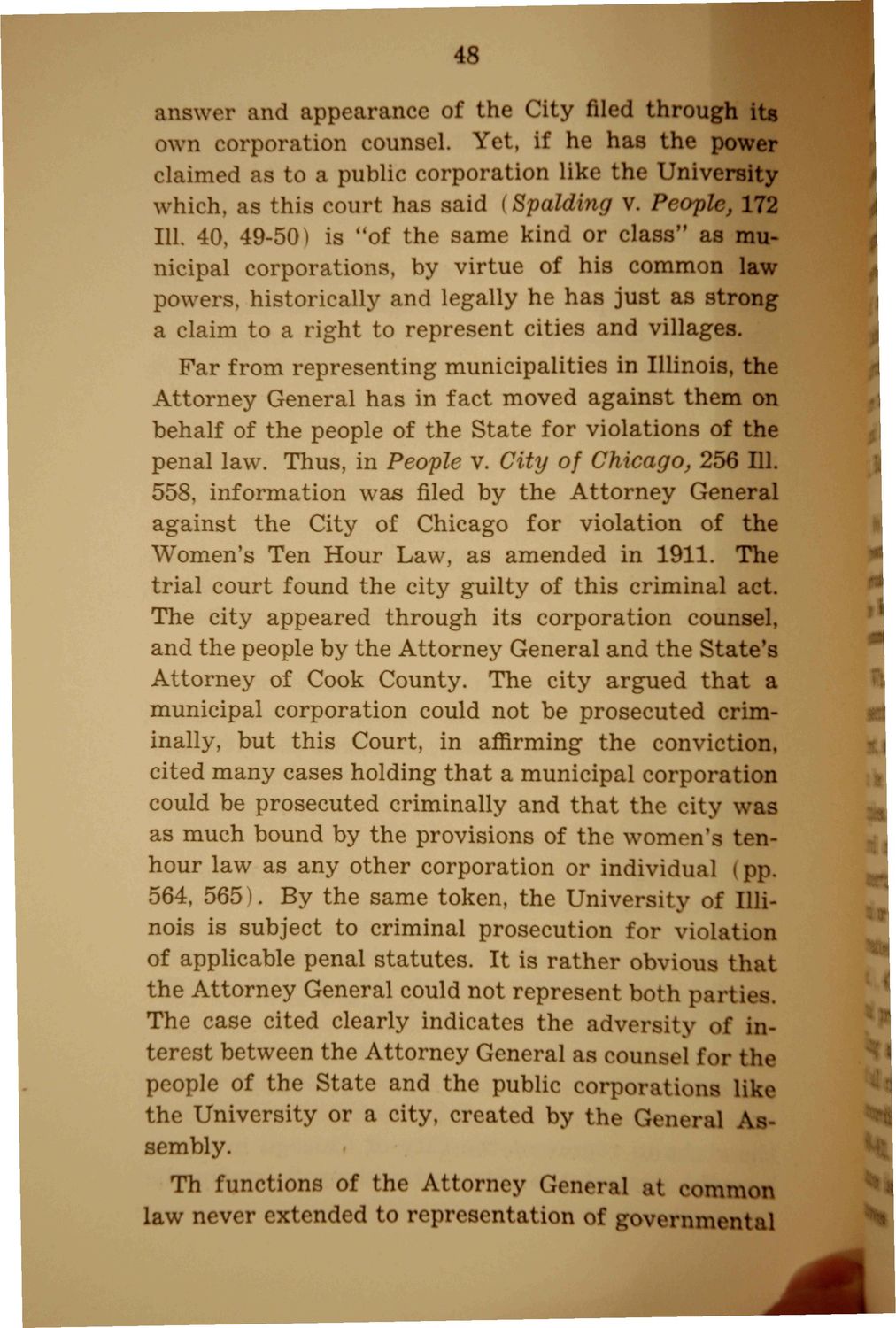| |
| |
Caption: Booklet - UI Charter of Freedom (1942)
This is a reduced-resolution page image for fast online browsing.

EXTRACTED TEXT FROM PAGE:
48 answer and appearance of the City filed through Itt own corporation counsel. Yet, if he has the power claimed as to a public corporation like the University which, as this court has said {Spalding v. People, 172 111. 40, 49-50) is "of (he same kind or class" as municipal corporations, by virtue of his common law powers, historically and legally he has just as strong a claim to a right to represent cities and villages. Far from representing municipalities in Illinois the Attorney General has in fact moved against them on behalf of the people of the State for violations of the penal law. Thus, in People v. City of Chicago, 256 111 558, information was filed by the Attorney General against the City of Chicago for violation of the Women's Ten Hour Law, as amended in 1911. The trial court found the city guilty of this criminal act. The city appeared through its corporation counsel and the people by the Attorney General and the State's Attorney of Cook County. The city argued that a municipal corporation could not be prosecuted criminally, but this Court, in affirming the conviction cited many cases holding that a municipal corporation could be prosecuted criminally and that the city was as much bound by the provisions of the women i tenhour law as any other corporation or individual (pp 564, 565 i. By the same token, the University of Illinois is subject to criminal prosecution for violation of applicable penal statutes. It is rather obvious that the Attorney General could not represent both parties The case cited clearly indicates the adversity of interest between the Attorney General as counsel for the people of the State and the public corporation.^ like the University or a city, created by the G neral A sembly. Th functions of the Attorney Genera] at common law never extended to representation of governmental
| |